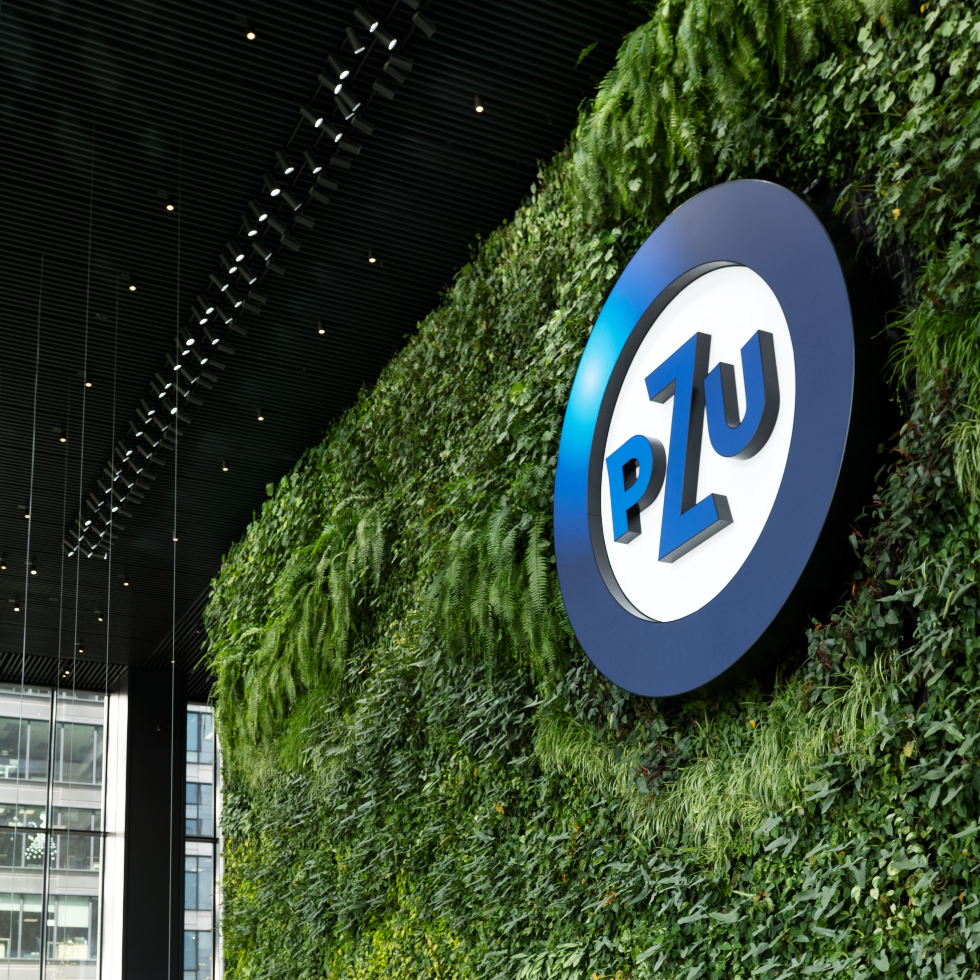The PZU Group’s existing 2021-2024 “Potential and Growth” strategy is based on focusing on customer needs, personalization and flexibility of offerings, and embedding these requirements in specially created ecosystems. Its achievement involves the implementation of a modern business model with observance of the principles of sustainable development and environmental care. It also assumes an improved quality of life for employees and customers and a commitment to the development of local communities.
PZU Group’s strategy for 2021-2024 was built on the basis of 4 fundamental goals:
Area 1 - stable dividend and growth in premiums written and revenues
Area 2 – utilization of PZU Group’s potential
Area 3 - innovation
Area 4 - sustainable growth
Area 4 – sustainable growth
Long-term assumptions – made in defining ambitions
The PZU Group’s strategic ambitions until 2024 were based on predictions of both global and local social and economic changes. The most important of them are the new trends after the COVID-19 pandemic, climate change, and changing demographics.
As a result of the COVID-19 pandemic, digitization and the use of advanced technologies have greatly accelerated and new trends have emerged that will shape client preferences and needs in the future. The PZU Group sees these changes as an opportunity to grow faster and strengthen its competitive edge. As data analysis tools, machine learning, artificial intelligence, chatbots, virtual assistants, data mining are developed and the possibilities of integrating sales channels (omnichannel approach) emerge, the PZU Group will be able to strengthen its relationships with clients by offering personalized products in the most accessible way possible.
Climate and environmental issues are also becoming increasingly important in business operations. Climate change, on the one hand, will intensify chance events, namely the occurrence or absence of catastrophic events, such as floods, droughts, heat waves, torrential rains, hail, cyclones or whirlwinds. This will have a direct impact on the amount of claims paid out by PZU, the cost of reinsurance protection, and the level of capital requirements. On the other hand, growing climate awareness opens up opportunities for the PZU Group to develop its product offering in new areas of the insurance and investment business.
The trends related to demographic changes are also important. As the population continues to decline, coupled with the simultaneous aging of the population, the demand for health care and longterm care to senior citizens increases. The PZU Group wants to respond to these challenges by introducing products and services that will genuinely enhance the well-being of people aged 60+.
At the same time, due to the armed conflict in Ukraine and the consequences in the economic and social sphere, there are further challenges and potential risks and among them, for example: rising inflation translating into a decrease in insurance profitability, and indirectly into a decrease in sales by weakening the condition of households and businesses. Simultaneously, the expected increase in TPL prices is not taking place, which could affect sales plans. An increase in interest rates, in turn, results in higher bank profitability, but also in a decline in interest in loans, which could make it difficult for banks to achieve their contribution targets in the long term. Clearly, hostilities translate into the conduct of business of Ukrainian companies belonging to the PZU Group, and therefore the risk of losing business and not achieving the assumed market position.


